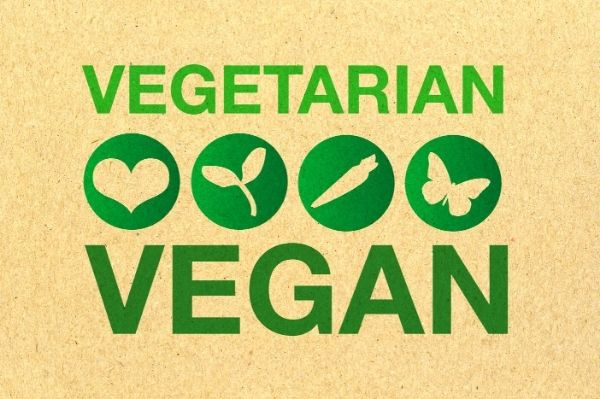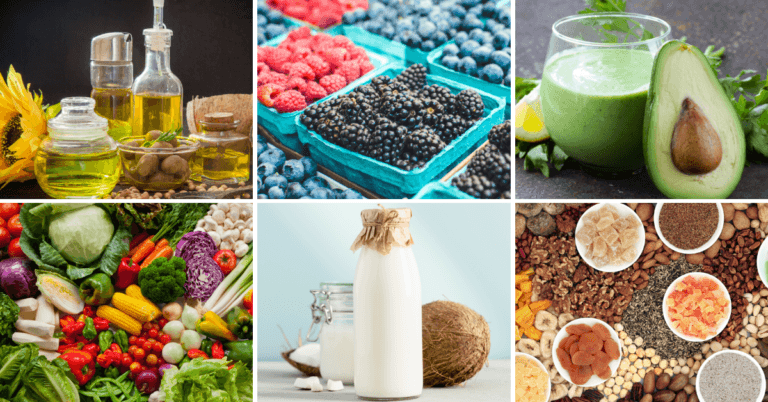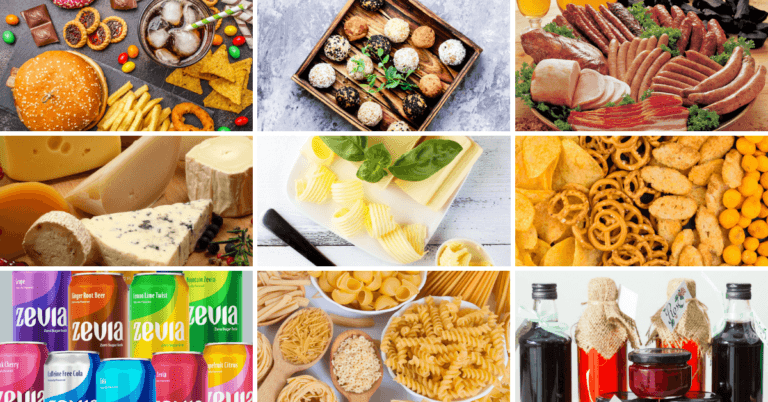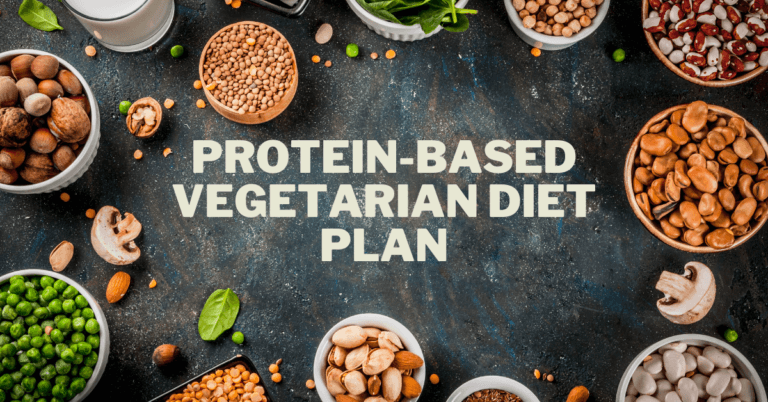Vegetarian vs Vegan – Which Is Healthier
Vegetarian vs Vegan – Which Is Healthier?
Both diets offer similar health benefits and generally encourage people to eat more antioxidant-rich and nutrient-dense whole foods. It is difficult to say which diet is more healthful because both diets have advantages and disadvantages. For example, unlike vegans, lacto-vegetarians get calcium, phosphorus, and vitamin D from dairy products.
However, avoiding dairy and eggs may help vegans keep their cholesterol levels down. Vegans are also at risk for an essential omega-3 fatty acid deficiency, specifically in EPA and DHA, even if they consume plant sources of these nutrients. DHA is necessary for brain function and cognition and to avoid brain fog, memory difficulty, and more.
Vegetarians and pescatarians can obtain EPA and DHA more easily from eggs and seafood. According to a 2019 study Trusted Source, adults from Argentina who identified as vegan adhered more closely to a healthful vegan lifestyle than vegetarians and non-vegetarians.
What Is Vegetarian?
Vegetarian diets continue to increase in popularity. Reasons for following a vegetarian diet are varied but include health benefits, such as reducing your risk of heart disease, diabetes and some cancers. Yet some vegetarians rely too heavily on processed foods, which can be high in calories, sugar, fat and sodium.
And they may not eat enough fruits, vegetables, whole grains and calcium-rich foods, thus missing out on the nutrients they provide. However, with little planning, a vegetarian diet can meet the needs of people of all ages, including children, teenagers, and pregnant or breastfeeding women. The key is to be aware of your nutritional needs so that you plan a diet that meets them.
Types Of Vegetarian Diets
When people think about a vegetarian diet, they typically think about a diet that doesn't include meat, poultry or fish. But vegetarian diets vary in what foods they include and exclude:
- Lacto-vegetarian diets exclude meat, fish, poultry and eggs, as well as foods that contain them. Dairy products, such as milk, cheese, yogurt and butter, are included.
- Ovo-vegetarian diets exclude meat, poultry, seafood and dairy products, but allow eggs.
- Lacto-Ovo vegetarian diets exclude meat, fish and poultry, but allow dairy products and eggs.
- Pescatarian diets exclude meat and poultry, dairy, and eggs, but allow fish.
- Vegan diets exclude meat, poultry, fish, eggs and dairy products — and foods that contain these products.
Some people follow a semi-vegetarian diet — also called a flexitarian diet — which is primarily a plant-based diet but includes meat, dairy, eggs, poultry and fish on occasion or in small quantities.
Planning A Healthy Vegetarian Diet
To get the most out of a vegetarian diet, choose a variety of healthy plant-based foods, such as whole fruits and vegetables, legumes and nuts, and whole grains. At the same time, cut back on less healthy choices, such as sugar-sweetened beverages, fruit juices and refined grains. If you need help, a registered dietitian can assist you in creating a vegetarian plan that's right for you.
What Is Vegan?
The term “vegan” was coined in 1944 by a small group of vegetarians who broke away from the Leicester Vegetarian Society in England to form the Vegan Society. They chose not to consume dairy, eggs, or any other products of animal origin, in addition to refraining from meat, as do vegetarians .
The term “vegan” was chosen by combining the first and last letters of “vegetarian.”Veganism is currently defined as a way of living that attempts to exclude all forms of animal exploitation and Cruelty, be it from food, clothing, or any other purpose.
Vegetarian vs Vegan
When considering vegan Vs vegetarian, you know that a vegetarian is someone who does not eat meat or consume any kind of animal product. They eschew meat, poultry, and seafood. However, they often consume milk and milk-based products as well as eggs. Generally speaking, vegetarians don't eat anything that requires an animal to die, but they do consume some animal-produced products including honey.
Both vegetarians and vegans avoid meat, poultry, and seafood. But when considering vegetarian Vs vegan, vegans take things a step further by not consuming milk, eggs, honey or any product/by-product made from animal/animal skin. Those who identify as vegan generally choose the diet for ethical reasons.
As they tend to be passionate about animal welfare, many avoid wearing leather and suede because they are made from animal skins. They may also avoid any fabrics that are made from animal byproducts, including wool and silk, because the animals used to produce these materials are often harmed in the process.
What Are The Benefits Of A Plant-Based Diet?
A diet centred on plenty of whole, minimally processed plant foods lowers your risk of heart disease and benefits your overall health1.
Vegetables, fruit, legumes, whole grains, nuts and seeds are low in saturated fat, contain heart-healthy fats and are an excellent source of fibre. They give our body vitamins, minerals, antioxidants and Phytochemicals, which offer protection against disease. Our research on dietary patterns clearly shows that vegan and vegetarian diets are associated with a lower risk of heart disease.
People that follow a vegan or vegetarian diet generally have lower blood pressure and Low Density Lipoprotein (LDL) cholesterol than non-vegetarians3. Some studies have shown that well-planned vegan and vegetarian diets help people to control their blood sugar levels and may reduce inflammation in the body too.
The key thing to note when looking at the evidence is that vegans and vegetarians tend to lead a healthier life overall, which explains some but not all, of the lower risk seen in these groups. For example, people who follow a vegetarian diet may be more physically active and drink less alcohol.
Is A Plant-Based Diet Healthy?
Other common types of plant-based lifestyles can include meat, dairy, or seafood in varying quantities. The most popular versions of these diet types are:
Plant-Based
Plant-based is any diet that promotes the bulk or all of your’s intake from plants. Plant-based does not always mean that you are vegan or vegetarian, as eating a plant-based diet can be interpreted as the bulk of your diet comes from plants, not all of it. Meat is typically the animal product most abstained from in a plant-based diet.
Vegans and vegetarians are all in, plant-based eaters are more curious than committed.
Pescatarian
A diet based on avoiding meat (with or without eggs and dairy) with the occasional seafood and shellfish consumption. Many vegetarians and vegans start out as pescatarian or evolve into it should they need more fat and protein than their vegetarianism or veganism is providing.
Flexitarian
Intentionally eating more vegan or vegetarian meals while also eating less meat, dairy, and seafood overall. This is a great first step if you’re new to either a vegan or vegetarian diet.
The Difference Between Vegan- And Vegetarian-Based Health Benefits
It seems people's reasoning for choosing a vegan vs vegetarian diet is just as diverse as the types of plant based eating styles out there, and understanding which diet is best for you can really depend on the person.
To help you understand the differences between these two meal plans, we’ve compared how each diet stacks up based on the following criteria:
- Nutrition
- Health Benefits
- Sustainability & Humanely Raised
Nutrition
Nor vegetarian or vegan diets are designed with specific nutritional requirements in mind and neither vegans nor vegetarians are automatically healthy. Both diets are intended to exclude certain types of foods (aka meat, seafood, and dairy), not necessarily increase your intake of healthy foods.
After all, soda, french fries, and Oreos are all on the table for vegans!
That being said because both vegans and vegetarians emphasize a lot of plants in their diet and the potential to improve nutrition intake is there.
Let’s pretend each diet uses calorie control, macro balance, and includes plenty of nutrient-dense plant foods, then how would they compare in terms of nutrition?
Done right, both a vegan and vegetarian diet will get you a lot of key nutrients, especially vitamins A, C, E, potassium, and folate, along with loads of healthy fat and fiber. That's because plants, especially fruits and veggies, tend to be some of the most nutrient-dense foods we know of.
But when it comes to balancing your vegan macros, mainly protein intake, vegetarianism may have a clear advantage. Plants are not typically a protein-dense food, but dairy and eggs are.
Of course, there is a difference between loading up on cheesy vegetarian dishes and opting for more quality choices.
Including some options like low-fat yogurt, cottage cheese, milk, and eggs with meals and snacks can significantly boost Vegetarians protein intake. Plus, they are a source of complete proteins and contain other key nutrients often lacking in plants like calcium and vitamin D.
Bottom Line
Both diets can add loads of nutrition to your day, but vegetarian diets have an edge with the potential for more protein-dense options, along with calcium and vitamin D from dairy and eggs.
Health Benefits
Many people choose to go vegan or vegetarian in the first place to lose weight or for health reasons. And it's because diets high in nutrient-dense plant foods are associated with a wide range of health benefits.
Both vegan and vegetarian meal plans are associated with weight loss, heart health, and improved blood sugar control and blood cholesterol Of course, these benefits, for your weight, heart or otherwise, are only fully realized when calorie control and overall nutrition balance is considered, and that goes for vegans and vegetarians.
The option to add or remove animal products like dairy and eggs with vegetarian eating has its pluses and minuses – it's not as clear-cut as one may think. Yes, full-fat dairy can be a source of saturated fat, but a well-planned vegetarian diet should opt for low-fat dairy and also contain a ton of foods with healthy fats.
Additionally, some dairy intake has been associated with potential health benefits like improved blood sugar control and better weight management.
Bottom Line
It's a draw. Vegan and vegetarian diets done right may provide some significant health benefits but like most things, it depends on what works best for the individual and how healthy they are already.
Sustainability And Humanely Raised
Both styles of eating get points for sustainability since opting for more plants in your meals is thought to be slightly easier on the environment by using fewer resources (mainly less land, feed, and water) for production.
Of course, it always depends on the type of vegan and vegetarian foods you choose. A lot of energy goes into processed foods.
Overall vegan diets have the edge when it comes to sustainability since dairy can require just as many resources as meat. Additionally, because vegans avoid all animal products and by-products there are likely zero animals harmed in the making of their meals.
Bottom Line
Vegan diets are the gold standard here since opting for more plant foods over meat and dairy might help reduce the use of natural resources in food production.
Environmental Benefits Of A Vegetarian Or Vegan Diets
More and more evidence is now emerging that identifies the impact a meat-eating diet has on the planet.
A study by Oxford University in 2018 [13] found that swapping a meat-eating diet for a plant-based diet was one of the biggest ways to reduce our impact on the planet. The study found that high-impact beef producers created 105kg of CO2 equivalents – 12 times higher than low-impact beef producers – and uses 370m2 of land per 100 grams of protein – 50 times greater than low-impact beef producers.
In contrast, low impact beans, peas and other plant-based proteins created just 0.3kg of CO2 equivalents (this included all packaging, processing, and transportation) and uses a meagre 1m2 of land per 100 grams of protein. In addition, 18% of greenhouse gas emissions are generated by animal agriculture, more than that created by all transportation combined [14]. Not only that, but livestock and their by-products account for 51% of all worldwide greenhouse gas emissions.
David Attenborough’s documentary Extinction also highlighted the need for more of us to adopt a meat free diet as our planet simply cannot sustain the billions of meat eaters. However, when moving to a plant-based diet, it is still better to eat seasonally and aim to buy local produce, or produce that doesn’t have a high carbon footprint.
Some plant-based foods such as the production of almond milk can contribute to Co2 emissions. And soya production contributes to the destruction of rainforests. So do your research and ensure you are purchasing products that use sustainable methods of production.
Vegetarian And Vegan Eating For Babies And Young Children
Up to the age of six months, babies only need breast milk or infant formula.
From around six months, most babies are ready to be introduced to solids – although breast milk or infant Formula is still their main source of nutrition until 12 months. Vegetarian and vegan foods can be safely introduced to babies and young children, provided all their energy and nutrient needs are met.
This requires careful planning. For some babies – especially those being introduced to vegan eating, supplements may be recommended to ensure some essential nutrients typically provided by animal-based foods are supplied in adequate amounts (such as iron and vitamin B12).
As children grow, they need loads of nutrients – a vegetarian diet should include:
- Protein alternatives (such as nuts, eggs, legumes and tofu).
- Energy for growth and development.
- Iron to prevent anemia.
- Vitamin B12.
- Vitamin D and calcium to prevent bone disease.
- Suitable fats from non-meat sources.
- Food in the correct form and combination to make sure nutrients can be digested and absorbed (such as foods high in vitamin C alongside iron-rich plant foods).
If you wish to introduce your child to vegetarian or vegan eating, seek advice from a dietitian, doctor or Your maternal and child health nurse to ensure they are getting essential nutrients for optimal growth and development.
The Verdict
Veganism and vegetarianism are very similar and quite different at the same time. And figuring out which diet to choose really boils down to personal preference.
Vegan diets have a possible advantage when it comes to sustainability and animal welfare, but vegetarian diets might be superior when it comes to nutrition and health benefits. Of course, all of this depends on how well vegans and vegetarians plan and execute their nutrition.
Learning how to balance your food choices to match your health and fitness goals is where the real challenge lies, and ultimately the best diet for you is the one you enjoy eating most – as this is the diet you will stick to the longest!
Need help planning and prepping a healthy vegan or vegetarian diet? Let us do the hard work for you with high-protein, nutrient-dense meals cooked and delivered right to your door.
How Do You Follow A Vegan vs Vegetarian Diets And Still Make Sure You're Getting All The Proper Nutrition?
As is the case with any diet or meal plan, just because you cut out or restrict certain foods, that doesn't mean it's automatically healthy. In other words, there are specific nutritional guidelines to keep top of mind whether you follow a vegetarian or vegan diet.
For instance, both vegetarians and vegans need to be conscious of the amount of iron and vitamin B12 in their diet, says Kate Denniston, a licensed naturopathic doctor who work closely with vegans and vegetarians to keep their nutrient levels optimal.
Adding foods such as lentils, Swiss chard, soybeans, and sesame seeds to your meals will up your iron intake, while nutritional yeast and Crimini mushrooms are excellent plant-based sources of B12, she suggests. Spinach is an especially great option for vegans because it has protein, iron, as well as vitamin C, which helps with iron absorption, adds Denniston.
Absorption of nutrients is important, meaning you want to increase your intake of fiber-rich foods that'll help with digestion, like asparagus, as well as fermented products like sauerkraut, which encourages a happy, healthy gut, says certified wellness coach David Nico, Ph.D., L.M.C.
However, because vegetarian and vegan diets tend to include a lot more fiber than the stereotypical omnivorous diet, there is a tendency for bloating. Nico suggests trying fennel to support the GI tract and decrease flatulence. (That's farting, BTW.)
Protein is another big concern for both vegan and vegetarian eaters, says Amanda A. Kostro Miller, R.D., L.D.N., who serves on the advisory board for Smart Healthy Living. After all, if vegetarians and vegans don't eat meat, where do they get their protein?
Fortunately, there are countless plant-based protein sources, including legumes, soy, nuts, and vegetables. The trick is to make a list of these types of protein sources and get creative with your meals, explains Miller. However, unlike animal proteins, plant proteins are considered “incomplete” because they don't contain all of the essential types of protein that humans need, she adds. Therefore, it's best to pair two or more plant protein sources to make them complete—such as lentils and quinoa; beans and nuts; nut butter and whole-grain bread; or tofu and brown rice
Conclusion
Both vegetarians and vegans choose not to eat meat and fish. However, veganism is a stricter form of vegetarianism that prohibits the consumption or use of any products that come from animals, including dairy, eggs, honey, leather goods, wool, and silk. Vegetarians may eat dairy products, eggs, honey, and other byproducts that do not involve the slaughter of animals.
However, there are several variations of the vegetarian diet. For example, some vegetarians choose to eat eggs but not dairy products. Vegan and vegetarian diets generally include a range of fruits, vegetables, nuts, seeds, grains, and pulses, as well as “meat substitutes” that derive from these food types.
Both vegetarian and vegan diets may provide health benefits, including reduced body weight, lower cholesterol levels, and decreased risk of cardiovascular disease. However, it is important for vegetarians and vegans to ensure that they are meeting all of their nutritional requirements. For example, plants do not naturally contain vitamin B-12, so vegans and vegetarians may need to consume fortified foods or take dietary supplements to get enough vitamin B-12.
I trust you enjoyed reading the article on Vegetarian vs Vegan – Which Is Healthier? Please stay tuned. There are more blog posts to come very shortly.
JeannetteZ
Your Opinion Is Important To Me
Ideas? Thoughts? Questions? I would love to hear from you. Please leave me your questions, experience and remarks about Vegetarian vs Vegan – Which Is Healthier in the comments section below? You can also reach me by email at Jeannette@LivingTheVeganLifestyle.org.
>>Please click here to read more about the Vegan Diet on Wikipedia<<<
It is so easy to cook your own vegan food, and you feel more energetic and lighter as a result. Here are some links to some of my favourite articles:












